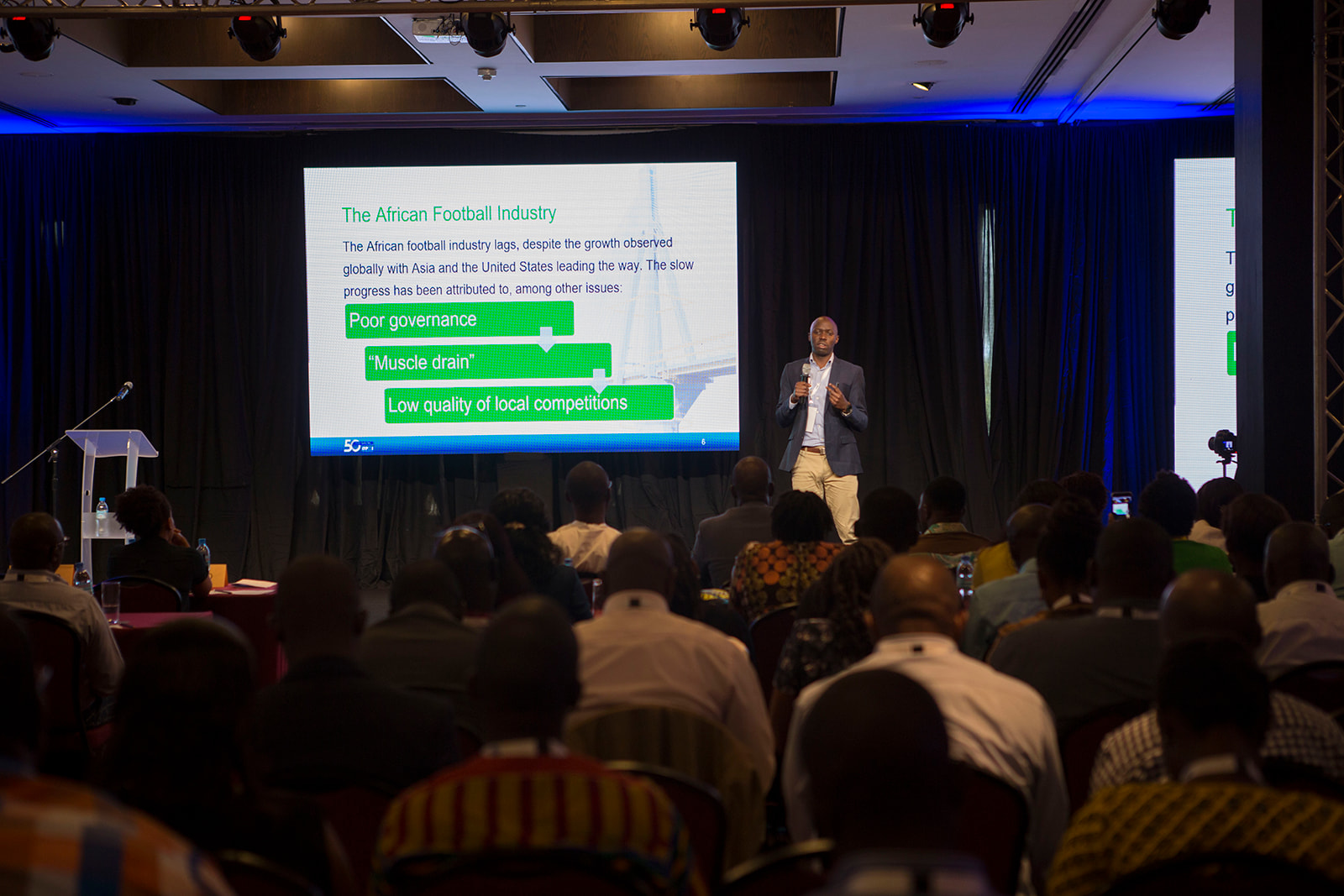
The sports industry is one of the most vibrant owing to its cross-cutting nature. Majority of the world’s population has engaged in sport in one form or the other. Football is the world’s most popular game present in almost all corners of the world. In Africa, football is omnipresent with matches organised in various forms and variable group sizes in whatever space people, especially young ones, find available.
The sports industry is estimated to be worth over 700 billion with some sources putting the size of the sector at 1.3 trillion dollars. Football commands a considerable portion of the sports industry, over 40%, a reflection of the popularity of the game.
The main drivers in the industry are match day ticket sales, merchandising, broadcasting and media rights. Lately, we have also seen a lot of investment going into sports infrastructure with stadium construction and redevelopment projects both in Africa and even abroad. Further, a digital transformation fueled by developments in technology is part and parcel of the game exemplified by the adoption of social media and the proliferation of data, not to forget eSports.
The African Football Industry
Football has grown tremendously since the turn of the century. However, the African football industry lags, despite the growth, observed globally with Asia and the United States leading the way. The slow progress has been attributed to poor governance of the sport, which has resulted in “muscle drain”. Muscle drain is a phenomenon used to describe the migration of players mainly to Europe and lately to Asia and the United States in search of greener terrain.
Ultimately, the quality of local teams and competitions has continued to diminish. The unstemmed movement of footballers abroad leaves the continent with an inferior (football ) product that it is unable to effectively sell in the local, leave alone the global market. However, thousands of youths continue to be actively engaged in football across the continent, mostly in amateur competitions. So what can be done?
The Projectization of Football
At the Project Mangement Institute Africa Conference held in Dar es Salaam Tanzania, FFA CEO, Mr Brian Wesaala, presented a paper titled Project Management in Football – A Case of Obama Cup. In his presentation, he highlights the importance of embedding formal project management in the African football industry – the projectization of football.
This alines well with the advent of The Project Economy, which the Project Management Institute describes as “one in which people have the skills and capabilities they need to turn ideas into reality. It is where organisations deliver value to stakeholders through successful completion of projects, delivery of products, and alignment to value streams. And all of these initiatives deliver financial and societal value.”
PM Knowledgeable Youths
The Africa football industry is in dire need of people with skills and capabilities that they can use to turn ideas into reality – project management skills. And the best people to start with are the players themselves. Arming football players and other sportspeople with project management skills will help them better manage their careers and other aspects of their lives. Further, they will be empowered to make a positive contribution to the industry during and after their playing careers.
PM for Infrastructure Development
Secondly, project management will be required to bridge the sports infrastructure gap in the Africa football industry. The Football Foundation for Africa advocates for safe, smart and sustainable (Triple S) facilities that serve the community and act as centres for collaboration. With the youth population forecast to grow tremendously in the next 30 years, the need for spaces where they can be actively engaged physically and socially can not be underestimated.
PM for Impactful Sports Events
Thirdly, project management is required in the delivery of impactful sports events, football tournaments. Mega sports projects such as the World Cup and Africa Cup of Nations are usually designed with legacy and CSR plans in place. With the numerous football tournaments held at the grassroots level, there is an urgent to need to ensure that they deliver financial and societal value. Again, the projectization of such events will be critical in achieving this.
Other areas that were highlighted in the presentation include digital transformation and its impact on football, the growth of women’s football and the internationalisation of football. All of these will require project management skills.
You can read the full paper here: Project Management in Football – A Case of Obama Cup.
 Back to Blog
Back to Blog 







